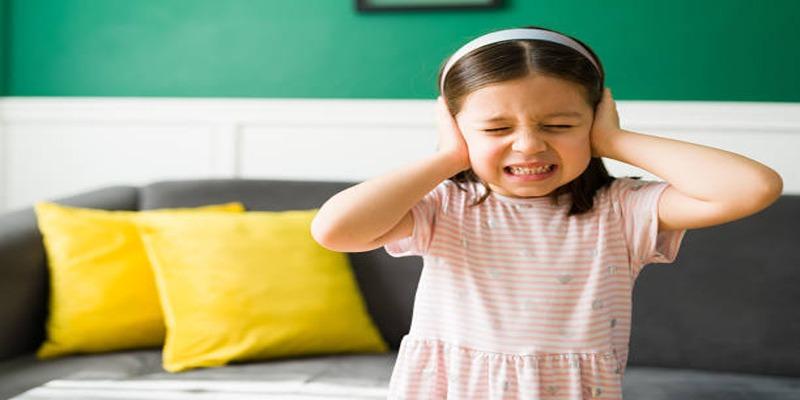Ensuring Children Safety with Magnets, Sound, and Batteries
Ensuring children’s safety around magnets, sound, and batteries is crucial in today’s tech-filled world. Small magnets can pose choking hazards, loud noises could damage hearing, and improper battery handling may lead to injuries. By being aware of these risks and taking preventive measures, parents and guardians can create a safer environment for children to explore and learn.
Importance of safety around common household items:
Household items like magnets, sound-emitting devices, and batteries are ubiquitous in our daily lives. From refrigerator magnets to toys that produce sound and electronic gadgets with batteries, these items play a crucial role in our day-to-day activities. However, they can also pose potential hazards to children if not used or stored properly. According to the U.S. Consumer Product Safety Commission, more than 15,000 children annually are treated in emergency rooms due to accidents involving household magnets alone.
Understanding the risks of magnets:
Magnets, while fascinating and useful, can quickly turn dangerous when not handled correctly, particularly around children. Ensuring safety requires awareness and precaution.
Swallowing Risks
Small or high-powered magnets can pose serious health risks if swallowed. Once inside the body, these magnets can attract each other through layers of tissue, potentially causing perforations, blockages, or infections. These injuries often require surgical intervention and can lead to long-term complications. Parents should keep small magnets out of reach of young children and supervise any activities involving magnetic toys to prevent accidental ingestion.
Choking Hazards
Magnets and magnetic toys often include small components that can become choking hazards for young children. Curious toddlers might unknowingly put these items in their mouths, risking life-threatening airway obstructions. It’s essential to regularly inspect toys and household objects to ensure they do not pose such risks.
Manufacturers also play a significant role by adhering to safety standards and labeling products appropriately. Vigilance and proper storage are critical to reducing the likelihood of choking accidents involving magnets in a home setting.
Preventive measures
Parents and caregivers can adopt several strategies to minimize the risks associated with small magnets. Here are some important preventive measures:
- Keep magnets and magnetic toys out of reach of young children.
- Regularly check toys and household items for loose or broken magnets.
- Educate older children about the dangers of swallowing magnets.
- Dispose of damaged or defective magnetic products responsibly.
- Supervise playtime, especially when toys contain small, detachable parts.
The Risks of Loud Noises:

Exposure to loud noises can have significant effects on both health and well-being. Understanding these risks and taking precautionary measures is essential.
Effects on Hearing Health
Prolonged exposure to loud noises can lead to hearing loss or tinnitus, a persistent ringing in the ears. Noise-induced hearing loss occurs gradually as the sensitive cells in the inner ear become damaged. This damage is often irreversible, emphasizing the importance of safeguarding hearing. Avoiding loud environments, using ear protection, and limiting the volume on personal devices are key to preserving long-term hearing health and preventing lasting damage.
Impact on Mental Health
Excessive noise levels can disrupt concentration, increase stress, and lead to anxiety or irritability. Chronic noise pollution, such as in urban or industrial areas, exacerbates these effects, fostering feelings of unease or fatigue.
Furthermore, disrupted sleep due to noise can compound mental health challenges over time. Creating quiet spaces at home, using noise-canceling devices, and advocating for quieter environments are practical steps to mitigate these issues and maintain better mental well-being.
Risks to Physical Well-Being
Loud noises don't just affect hearing—they can also elevate blood pressure and heart rate, potentially increasing the risk of cardiovascular issues. Sudden or frequent loud sounds trigger stress responses in the body, leading to spikes in adrenaline.
This state of constant alert can strain the cardiovascular system. Limiting noise exposure, especially during rest, is crucial to reducing these physical health risks associated with high-decibel environments.
Tips for Sound Safety
Protecting yourself from excessive noise exposure is essential for both mental and physical well-being. Here are some practical tips to ensure sound safety:
- Use noise-canceling headphones or earplugs in loud environments.
- Maintain a quiet, designated area for relaxation at home.
- Limit exposure to loud music or machinery whenever possible.
- Keep the volume at safe levels when using personal audio devices.
- Schedule regular hearing check-ups to monitor ear health.
Battery Safety:

Proper battery safety is crucial to prevent accidents and ensure the longevity of your devices. Below are key aspects to keep in mind:
Proper Storage of Batteries
Always store batteries in a cool, dry place away from direct sunlight and heat sources. Excessive heat can cause batteries to leak or even explode, posing a safety risk. Use battery cases to prevent contacts from touching other metal objects, which could lead to short circuits. Avoid mixing old and new batteries in a device as it can lead to overheating or leakage, compromising both safety and performance.
Handling Damaged Batteries
If a battery shows signs of damage, such as swelling, leakage, or rust, handle it with care. Use protective gloves and avoid contact with any leaking material, as it can be harmful. Dispose of damaged batteries according to local hazardous waste guidelines.
Never attempt to recharge non-rechargeable batteries, as this can lead to overheating or fires. Taking proper precautions ensures safety and prevents harm to both individuals and the environment.
Safe handling and storage practices
Store and handle batteries with care to maximize their lifespan and maintain safety. Follow these practices for proper handling and storage:
- Keep batteries in a cool, dry place away from direct sunlight and extreme temperatures.
- Ensure battery terminals are covered or insulated to prevent accidental short circuits.
- Avoid storing loose batteries together, as contact between terminals can cause sparks or malfunctions.
- Store batteries out of reach of children and pets to prevent accidental ingestion or injury.
Practical Tips for Parents:
Teaching children about battery safety is crucial to ensure their well-being and the proper usage of these everyday items. Here are some practical tips for parents:
- Educate children about the dangers of swallowing batteries and why they should never put them in their mouths.
- Supervise young children when they use devices that require batteries.
- Choose battery-operated products with secure compartments that require tools to open.
- Regularly check household items for loose or accessible batteries.
- Promptly dispose of used or damaged batteries safely to minimize risks.
Conclusion:
Battery safety is crucial, especially in homes with children. Safe storage, educating kids about risks, and inspecting battery-operated devices can greatly reduce potential dangers. Proper handling and disposal ensure both family safety and environmental protection. With small, consistent efforts, parents and caregivers can prevent accidents and provide peace of mind.










